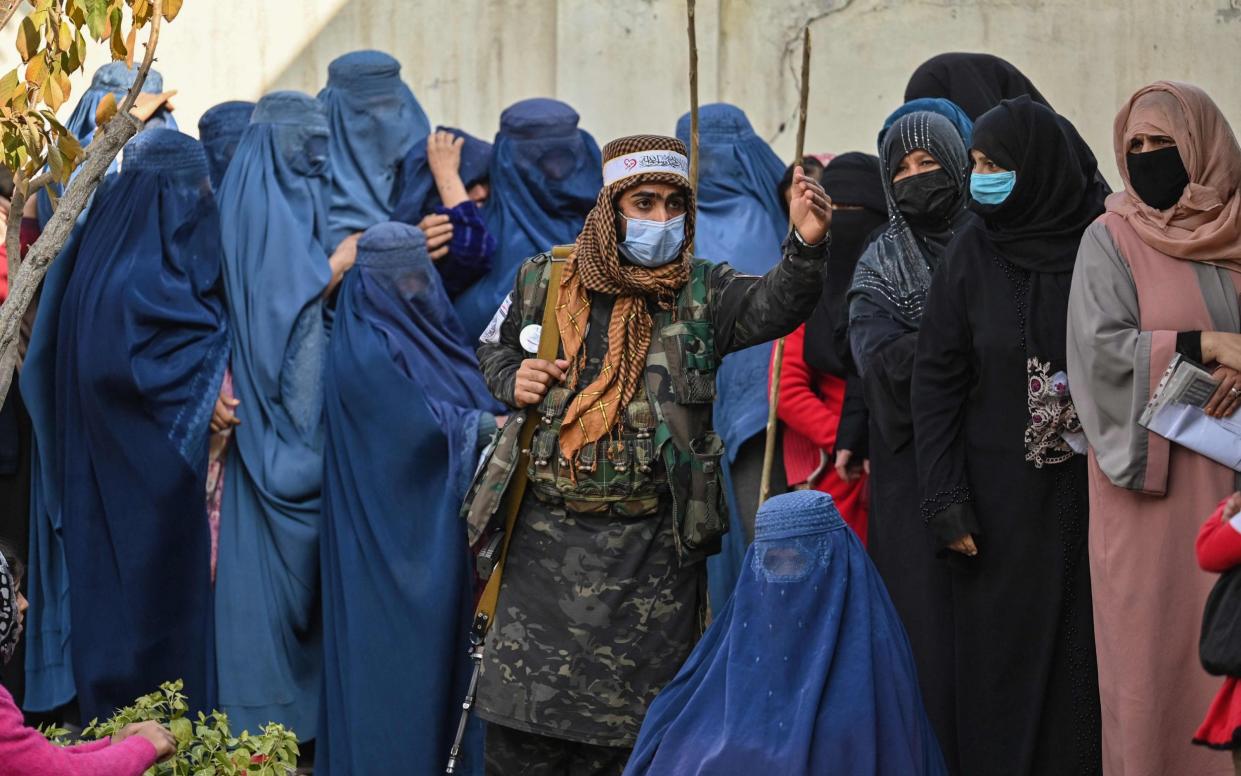Taliban forbids long-distance trips for Afghan women without male escort

Afghanistan's Taliban authorities said on Sunday that women seeking to travel long distances should not be offered road transport unless they are accompanied by a close male relative.
The guidance issued by the Ministry for the Promotion of Virtue and Prevention of Vice drew condemnation from rights activists and called on vehicle owners to refuse rides to women not wearing headscarves.
The move follows the Taliban barring many women in public-sector roles from returning to work in the wake of their August 15 seizure of power, and as girls remain largely cut off from state secondary schooling.
It also comes despite the hardline Islamists seeking to project a moderate image internationally in a bid to restore aid suspended when the previous government imploded during the final stages of a US military withdrawal.
"Women travelling for more than 45 miles should not be offered a ride if they are not accompanied by a close family member," ministry spokesman Sadeq Akif Muhajir told the news agency AFP, specifying that the escort must be a close male relative.
The new guidance, circulated on social media networks, also asked people to stop playing music in their vehicles.
Weeks ago, the ministry asked Afghanistan's television channels to stop showing dramas and soap operas featuring women actors. It also called on women TV journalists to wear headscarves while presenting.
Mr Muhajir said Sunday that the hijab, an Islamic headscarf, would likewise be required for women seeking transport.

The Taliban's interpretation of the hijab - which can range from a hair covering to a face veil or full-body covering - is unclear, and most Afghan women already wear headscarves.
Human Rights Watch blasted the guidance.
"This new order essentially moves... further in the direction of making women prisoners," said Heather Barr, the group's associate director of women's rights.
It "shuts off opportunities for them to be able to move about freely, to travel to another city, to do business, (or) to be able to flee if they are facing violence in the home", Ms Barr added.
Early this month, the Taliban issued a decree in the name of their supreme leader instructing the government to enforce women's rights.
But it did not mention girls' access to education.
Women's rights were severely curtailed during the Taliban's previous stint in power in the 1990s.
They were forced to wear the face-covering burqa garment, only allowed to leave home with a male chaperone and banned from work and education.
Respect for women's rights has repeatedly been cited by key global donors as a condition for restoring aid.
The UN has warned that Afghanistan faces an "avalanche of hunger" this winter, estimating that 22 million citizens face "acute" food shortages.

